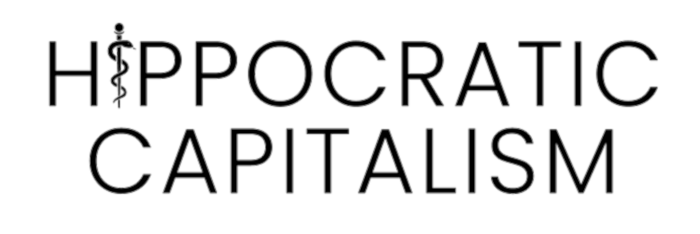Management as a Prerequisite to Good Culture

I’ve been thinking this week about leadership and professional management, thanks to two news articles and one podcast on a particular non-healthcare domain: policing. Police culture obviously differs from healthcare culture in some ways, but I think the two domains also have some key elements in common. More on that further down.
The first article was this disturbing piece about Street Cop, a company that provides training courses to police departments around the country. It’s part of a large industry of private police training companies. The article says that there are over 50 different such companies in New Jersey alone. Street Cop, for its part, says it trains between 25,000 and 30,000 officers per year around the country, including weeklong seminars, conferences, and both in-person and online courses. The impetus for the news article was a report from the New Jersey comptroller criticising a particular course as glorifying sexism and violence and disrespect toward the communities being policed. (The article gives lots of specific examples.)
The second article, also NYTimes, reported on a sexual discrimination lawsuit filed by four women against the New Jersey state police. One of the four is currently on the force and the other three are recently retired. The headline says it all: “The Police Force Where Female Officers Warn Other Women to Stay Away.” Ouch. The allegations are pretty much what you would expect from an old boys’ network that promotes straight white men over everyone else. It’s obviously hard for an outsider to test out such claims, but two numbers are noteworthy: only 5.6% of NJ state troopers are women, and about 25% are non-white, in a state with a highly racially diverse population, and where obviously half the residents are women. For comparison, here in the United Kingdom where I currently live, fully 1/3 of police are women. (Yeah, I know, it’s less than half, but it’s 5-fold better than NJ.)
The third item, a podcast from Freaknomics, had a much more positive message. It described a program developed by University of Chicago’s Policing Leadership Academy. In contrast to Street Cop, this program is for managers (sergeants, lieutenants, captains), not front-line police or detectives. It trains them in modern management methods, with the goal of helping them to improve their departments’ performance in catching and deterring criminals. Keep in mind that the most problematic policing cultures (racism, sexism, general disrespect toward fellow humans) are also fundamentally lazy. So replacing those elements with professional management doesn't just improve effectiveness, it also opens up opportunities for the better angels of police nature to reset the culture.
So what does this have to do with healthcare?
Healthcare, like policing, has a strong and distinctive culture. There’s also a tradition of expecting people to learn on the job. Like the old saying, “See one, do one, teach one.” Contrast this for a moment with the military. Yes, the military shares the very practical, hands-on orientation of both healthcare and policing, and is famous for throwing people in situations that they have to figure out on the spot. But in the military, most of those situations are actually training environments (as opposed to, say, actual combat). The military is constantly training, and they take both education and training extremely seriously.
At this point, I suspect a few of you are saying to yourselves, healthcare professionals spend more time in education and training than just about anyone. In the US in particularly, a medical degree typically requires a four-year undergrad degree followed by a 4-year medical degree, then between 3 and about 10 years of residency and fellowships before you can practice independently. All true. But most of that education is foundational rather than applied, and most of what’s labelled “training” is actually real-world patient care, with variable levels of supervision. More to my point, the vast majority of healthcare education and training is technical in nature rather than management and leadership. There's a lot of room for improvement here.
Gaps in effective, disciplined management systems allow healthcare, like policing, to go culturally off-track. In the 1970s it was The House of God, with its sexism and abuse of trainees and patients that put fraternity hazing to shame. 50 years later, frat culture has been largely replaced (at the top levels anyway) with Martin Shkreli-style greed culture. And I’m not just talking about hospital execs, but also health plan and pharma and biotech execs. All about profit, baby, and Greed is Good.
So here’s my theory: Good management, in conjunction with good metrics and disciplined processes, provides the structure whereby leadership can capitalize on the positive elements of culture, while driving out the less positive elements. Good management also legitimizes positive leadership and makes it harder to ignore. The absence of good management, on the other hand, as seen in both healthcare and police settings, allows less-desirable cultural elements to run the show. And then culture becomes self perpetuating when it takes over the training and indoctrination processes, as in the case of Street Cop, or abusive medical and surgical residency programs. (In the 1990’s, neurosurgery programs used to boast to applicants about their 100% divorce rates. I hope that’s changed.) Empathetic people get burned out and leave, while sociopaths thrive and get promoted. Rinse and repeat.
And here’s where I plant my seed of hope. I’m convinced that the vast majority of healthcare professionals have their hearts in the right place. They haven’t been sucked into the capitalist reality distortion engine. I see them writing essays on KevinMD, and posting on LinkedIn. They’re tired of being marginalized, of being prevented from doing their best work for patients. Given the right managerial tools and structure and authority, these healthcare professionals can radically improve the system.
Now, it’s not as simple as all physicians all going out and earning MBAs. For one thing, gaining management ability requires years of hands-on practice; it’s not something you can learn in a classroom. But if more medical professionals with the right motivation are able to gain management skills and knowledge, and make their way into leadership positions, there's an opportunity to bring health systems, insurance companies, pharmas, and the rest of corporate healthcare back under the cultural umbrella of the Hippocratic tradition. And do it in a way that’s financially sustainable.
A virtuous cycle, not a vicious one.
